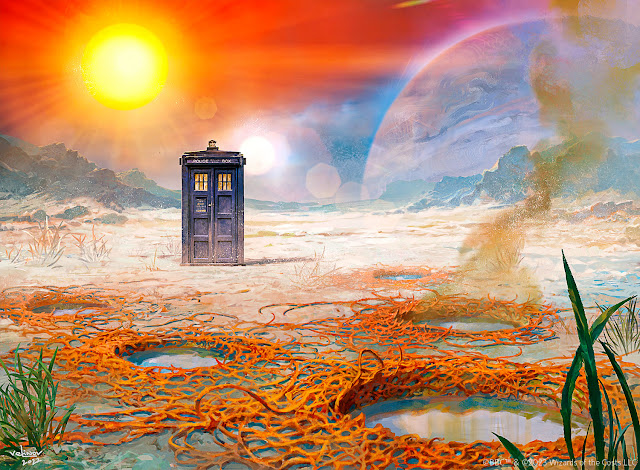The Power of Three [TV/2012.9.22]
★★★☆☆
For the most part, The Power of Three is a new and wonderful experience. Here we have quite possibly the most alien of Doctors, sticking himself into a normal life because of an invasion that defies every expectation. Chris Chibnall's exploration on how this Doctor ticks is a fascinating thing to see, finding domestic life absolutely grueling. The episode portrays his adventurous tendency as something akin to addiction, and it's certainly a novel approach. Matt Smith brings Chris Chibnall's script to life with the typical skill and ease we've come to expect from him at this stage, making sure that even when a scene threatens to become dull and lifeless, he injects a heap of much-needed vitality.
Karen Gillan and Arthur Darvill have always been great in their roles, but their performances in Series 7A really are something else. They truly feel as if they're a young married couple you'd walk past around the street corner, and at the same time they feel so intrinsic to the Doctor and the TARDIS at this point. They're one of the biggest reasons the first half of Series 7 works so well, and by now they're seasoned veterans delivering effortlessly good performances. Regardless of my grievances for this episode, I must say that it was a good idea for Moffat and Chibnall to set a story that looks at a very personal story about the Doctor's effects on his human friends. Amy and Rory have lives outside the TARDIS -- normal lives -- and although they know deep down that this can't continue forever, they love the Doctor too much to face the truth. There are so many powerful moments in this adventure, such as when Brian confronts the Doctor about past companions' fates, and when the Doctor and Amy have a personal, reflective moments outside UNIT headquarters.
To be fair to The Power of Three before I criticise it a bit, its fascinating premise couldn't possibly have lived up to its potential. An invasion of mysterious cubes that act without pattern or reason is an idea that sets the imagination ablaze -- certainly did mine -- and any neat and tidy explanation to fit the 45-ish minute runtime would have been hard not to feel anticlimactic. Rather infamously (and this time I must agree with the general populace), the Shakri are way too much of an afterthought that are defeated with a wave of the magic sonic screwdriver. Apparently Chibnall had to work overtime for this script after actor Steven Berkoff proved impossible to work with, and Douglas Mackinnon and the crew had to cobble up what they were able to salvage. The Shakri weren't intended to be written off so haphazardly, and it's a pity this was the case. What happens is that the rather sublime first thirty minutes are followed by the screen equivalent of a screeching halt, blowing so much the steam that made the episode truly special.
Even with these grievances, though, I would still pick up The Power of Three over most of Series 6 any time of the day. It's such an easy-going episode that thrives on Chibnall's deft hand at writing for established characters, and it also introduces Kate Stewart (which should be considered a bigger deal than it is, since she started off as a substantial character in fan-made Who films), whom I enjoy watching every single time. For a light-hearted good time, there's nothing else quite like this episode. Just don't focus too much on the invasion of the cubes.





Comments
Post a Comment